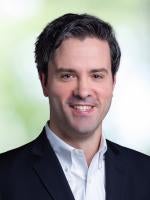A software developer for electronic health records lost its bid to recover tens of millions of dollars paid to settle a US Department of Justice investigation alleging violations of federal anti-kickback statutes because the government’s claims arose from the company’s provision of professional services, which fell within the D&O policy’s professional services exclusion. The decision highlights the importance of coordinating appropriate coverage across an insurance program, including purchasing additional coverages to cover all operational risks, as well as the risks associated with broad “arising out of” exclusionary language that may be misapplied to bar coverage for claims with only a tenuous connection to the excluded conduct.
Background
Practice Fusion develops cloud-based electronic health record software and licenses its software to healthcare providers. The software was free, but Practice Fusion made money by allowing pharmaceutical companies to pay to sponsor “clinical decision support” (CDS) alerts, notifications or care suggestions to providers based on a patient’s medical data. The DOJ began investigating Practice Fusion’s agreements with pharmaceutical companies to sponsor CDS alerts, which ultimately led to a $118 million settlement to resolve alleged violations of federal anti-kickback statutes.
Practice Fusion sought coverage under a $50 million tower of D&O coverage. The insurers denied coverage because the policies contained two separate professional services exclusion. The broader of the two barred coverage for claims “alleging, arising out of, based upon or attributable to” Practice Fusion’s performance of “professional services for others,” or “any act(s), error(s) or omission(s) relating thereto.”
The insurers contended that the DOJ’s claims arise directly from the company’s design and implementation of the CDS alerts, which amounted to professional services that gave rise to the DOJ’s claims. Practice Fusion countered that it only sold a product in the form of advertising space, which was not professional services, and that any professional services in the form of coding of CDS alerts were done for itself and not for clients who paid for the CDS alerts.
The trial court granted the insurer’s motion for summary judgment in the ensuing coverage litigation, concluding that the CDS-related claims arose directly from Practice Fusion’s provision of professional services. Practice Fusion appealed, but the judgment was upheld by the California appellate court.
Appellate Decision
The appellate court found that the undefined policy term “professional services” meant services arising out of a vocation involving specialized knowledge, labor or skill, where the labor or skill involved is predominantly intellectual rather than physical. As used in the professional services exclusion, the court recognized that the term “arising out of” is consistently given a broad interpretation and broadly links a factual situation with the event creating liability, connoting only a minimal causal connection or incidental relationship.
Because the DOJ alleged that Practice Fusion was compensated for deploying CDS alerts in its software and participated in the design of those alerts pursuant to its contracts with the pharmaceutical companies, the court concluded that the contracts were premised on Practice Fusion providing professional services. The court also pointed to language in the contract stating that Practice Fusion would perform all obligations in a “professional manner” and in accordance with “professional standards.” The DOJ’s claims arose from the performance of those services (i.e., Practice Fusion designing and coding CDS alerts), the court stated, which barred any losses connected to the DOJ settlement.
Discussion
The decision raises several critical points for policyholders to consider in procuring liability coverage.
Coordination of Coverages. Given the prevalence of professional services exclusions in D&O policy forms, the first is a question about why Practice Fusion was seeking coverage for contractually mandated professional services under a D&O liability policy at all, instead of under an errors and omissions (E&O) or professional liability policy specifically tailored to those risks. It may be an oversight in insuring those exposures, but it may also be a byproduct of the size and scope of the DOJ’s investigation and resulting exposure—over $118 million in settlement payments plus likely six if not seven-figure legal bills to defend the DOJ’s investigation.
Those significant losses very well may have exhausted the company’s E&O coverage, which led to pursuing D&O coverage as a secondary source of recovery, where even the $50 million in D&O limits may not have been enough to fully cover the settlement in the absence of the exclusions. In any event, the decision is a reminder to closely evaluate not only the strength of each policy in an insurance program in insolation, but also the ways that the policies work together.
A company with a broad professional services exclusion in its D&O policy should ensure that the definition of professional services in its E&O policy is broad enough to pick up those risks and avoid a coverage gap. This is especially true when, as in Practice Fusion, the D&O policy’s “professional services” term is undefined and has a more expansive common-law meaning than what may be proposed by the insurer in defining the scope of covered services under an E&O policy. Similar gaps can occur with broad “cyber” exclusions in D&O policies that may be problematic in barring coverage for securities claims, government actions or other claims with only a tenuous connection to cyber or privacy incidents, especially if an underlying cyber incident has exhausted available cyber limits.
Narrowing Exclusions. Regardless of the availability of alternative sources of recovery for professional exposure, policyholders should be very wary of broad “arising out of” causation language in any exclusions. The California appellate court stated that the insurer needed only demonstrate a minimal, incidental relationship between a factual scenario and the event creating liability to bring the prohibited conduct within the broadly-worded exclusion at issue. Better exclusions will only apply to claims “for” professional services and are often negotiable during policy placement or renewal.
Be Proactive in Evaluating Potential Coverage Needs. Auditing policies and paying attention to new endorsements, exclusions or limits in advance of every renewal is paramount to identifying and, if necessary, fixing any problematic provisions before a claim arises. But the Practice Fusion dispute also showed how insurance should be considered in conjunction with contracts and other transactions to ensure there are no surprises when an insurance claim is submitted.
In addition to California law and the facts alleged by the DOJ, the California appellate court also looked to the policyholder’s underlying contracts—which specifically referenced professional services and professional standards—to support the view that the facts giving rise to liability fit within the professional services exclusion. Assessing insurance at the time of contracting can highlight many important issues, from identifying potential uninsured risks and flagging problematic indemnity obligations to ensuring minimum insurance requirements and adding the appropriate entities as insureds under vendors’ liability policies.
Retaining experienced risk managers, brokers and coverage counsel early and often can help identify and address these and many other issues to try to avoid surprise denials and increase recovery if a claim arises.




 i
i

